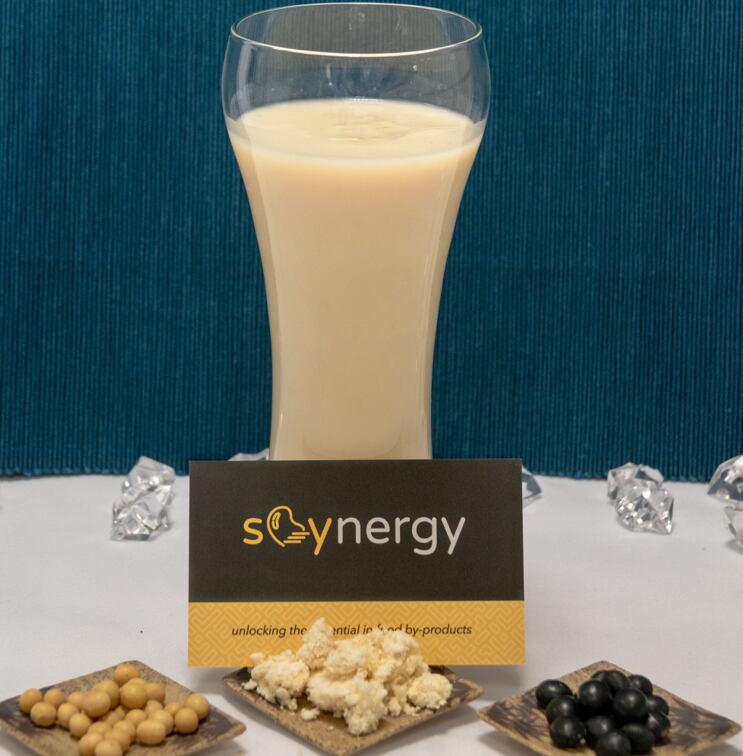The non-dairy probiotic drink was based on a project conducted in 2018 at the National University of Singapore (NUS), which developed a patented fermentation process by combining okara, enzymes, probiotics and yeast into a probiotic functional beverage.
Okara is the waste by-product of tofu and soy milk production. Everyday in Singapore, about 30 tonnes of okara is discarded or used as animal feed, compost or fertiliser.
While this affects the environment as food waste is the third largest greenhouse gas emitter globally, it is an economic loss too as manufacturers often have to pay for this disposal.
However, scientists at NUS think that okara is still highly nutritional for its amino acids, isoflavones and dietary fiber.
Product creation
So Soynergy was founded in 2020 to commercialise this technology.
Lum Yi Chyi, Soynergy’s COO told us the combination of okara, enzymes, probiotics and yeast, results in a less gritty mouthfeel with a fruity aroma.
It uses the probiotic strain Lactobacillus paracasei L26, Viscozyme L enzyme, and the Lindnera saturnus NCYC 22 yeast. The probiotic has been documented to support gut and cardiovascular health.
One of the issues with okara, which is essentially soybean pulp, is its high amount of insoluble fibres. These not only give an undesirable texture, but can also cause bloating and indigestion in some people.
“Our process is a fermentation process that converts these insoluble fibres to soluble fibre for better absorption,” added Lum.
The probiotic drink will initially require refrigerated conditions, although the firm is looking to develop a shelf-stable version.
Working partnerships
Lum said it was currently working with soy manufacturers in Singapore, with onsite processing units, to minimise transportation and contamination issues.
Each run can produce approximately 500 litres of the drink. It is also in the process of setting up a pilot facility with partners in the soy industry.
The firm hopes to launch the probiotic beverage next year, operating via a B2B strategy: “We are working with soy or tofu manufacturers who are interested to find alternative solutions for the okara by-products, and also move into the probiotic drink market. This way, they save on the disposal cost and also (probiotic drink) an additional revenue stream for them.”
Future portfolio
According to Lum, probiotic drink is only its first product, and is considering other formats, such as yoghurt drinks or spoonable yoghurt.
“We are looking at bio-okara which is similar to okara flour, and has wider applications in the confectionery, sauce and even plant-based protein industries.”
Soynergy recently exhibited at the Innovfest conference, organised by the National University of Singapore Enterprise.

